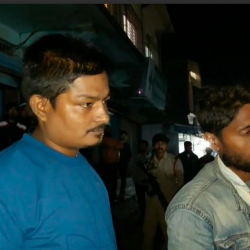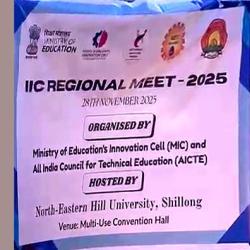Since the year 1989, Guwahati, the gateway to the north eastern India, has seen a mushroom growth in the Fourth Estate with entry of a number of newspapers and periodicals in various languages. Earlier, a few English and Assamese newspapers were published in Guwahati. For getting the major and detailed news, the people had to wait till evening for newspapers from Delhi and Kolkata. No doubt the haphazard growth in the print media gave an opportunity to a large number of unemployed educated youths to join this challenging profession of prestige. With the information technology witnessing development at fast pace, the media houses failed to get the competent and trained workforce to cope with the increasing demands of this expanding and fast changing sector. The vacuum created by the situation gave birth to the Neo-journalism. This is just a stopgap arrangement for the unemployed educated youths.
The media houses are run by influential and wealthy people, who have taken the Fourth Estate as key to develop their business. Naturally, they cannot leave a single penny to go without profit. Despite a number of vacancies in their units, these houses do not get suitable staff to fill up the vacancies because of their own shortfall. The reason, they do not like to spare necessary funds for the livelihood of the ‘so-called’ media persons. Media houses take advantage of unemployment especially among the educated youths and engage inexperienced people to do those jobs which require expertise, technical and language skill. But the moot point is that such people lack the primary knowledge of professional ethics. Nor do they have even the basic experience of interacting or communicating with people, which is a vital point to be developed in public relations - an inseparable part of journalism. To cut a long story short, they demonstrate a poor exhibition of their ethical behavior. What of course, they are unnaturally very sure of is that their job is quite ‘glamorous’. The ‘neo-journalism’ is dangerous to the profession in all respects.
As of today one comes across instances of many conflicts between the media and other sections of society. One of the reasons for such irritants is the violation of the basic norms of journalism. It hardly needs reiteration that a pen pusher or a journalist should remain controlled in most trying of circumstances. This to say the least is in the interest of gaining confidence of the people in the profession.
With regards to reporting the less said is the better. There are many cases of reports leading to controversies. At the other extreme are the readers, who remain a confused lot in so far as the authenticity of the news is concerned. This happens mostly because of the one-sided reports that appear in the print media and most of which are ‘syndicated’ (filed by the people who may not have the requisite journalistic background).
The plight of the journalists in particular and the Fourth Estate in general can also be traced to other ancillary reasons. A significant aspect of the modern-day journalism is the ‘hire and fire’ policy that is really very dear to most of the managements of the media houses. For minor mistakes, employees lose their jobs and that too even without a show cause notice. The poor innocent scribe fails to get his legal dues as well, in the long run. In all such cases, the media houses have the upper hand. The employees find themselves on the receiving end. In short, this noble profession continues to be badly unsecured despite all the charms.
At present a large number of mass communication institutes are doing field work and preparing a number of journalists year after year. But they have not been able to make much progress in achieving their aims. Most of such institutions abominably fail to even gauze the merits of their students. And what more one can expect what with the basic aim of most of these media training institutes providing the elementary education to their students on the Fourth Estate. These so-called institutes of media will never be able to supply the industry the trained and experienced manpower, if they cannot mould the mind of the students and subsequently create a true and ethical interest on the sector among their students. The motto should be to create the ‘right classes of the journalists. (End)
- Add new comment
- 15234 reads









Comments
Excellent observations sir.
Pages
Add new comment